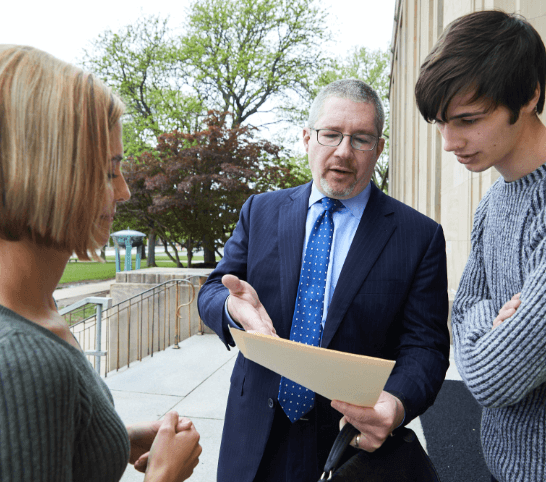Why getting legal help for academic misconduct violations is vital
As an attorney representing students accused of academic misconduct for over 20 years, I know how a student’s life is turned upside down by this type of accusation.
Going through the college disciplinary process is a stressful and possibly life changing situation. It is important that you must thoroughly understand the process and potential punishments.
What is academic misconduct?
Academic misconduct, broadly speaking, is any action which gains, attempts to gain, or assists others in gaining or attempting to gain unfair academic advantage. It includes plagiarism, collusion, contract cheating, and fabrication of data as well as the possession of unauthorized materials during an examination.
Here are some other examples of non-plagiarism academic misconduct I’ve seen throughout my career:
• Lying about the number of hours completed during a school internship
• Submitting fake transcripts to other colleges or jobs
• Lying about a family member dying in order to get an extension for an assignment or test
• Breaking into the school computer system to change grades
• Beginning an online test before a proctor is present
• Continuing to work on a timed test after the time is up
• Attempting to bribe TA’s or teachers to change a grade
• Claiming fake medical procedures in order to get an extension for an assignment
• How schools handle Academic Misconduct allegations
Usually when a student is accused of academic misconduct the school will send a notice to the student asking to set up a meeting with the office of student conduct. At that meeting, the disciplinary process will be explained to the student. The school may also seek to take a statement from the student and may possibly inform the student what their punishment would be if they took responsibility.. If the student doesn’t not take responsibility due to the suggested punishment being too harsh or the school lacking the evidence to prove the offense, then the case moves to the next step in the process. Either a hearing officer or a panel will listen to the evidence and make a decision if the school has proven their case by a preponderance of the evidence.
Penalties
So, what happens if a student does get accused of plagiarism? Depending on the severity of the conviction, penalties may include:
• Getting a zero on the assignment
• Getting a grade knocked down one letter (e.g., from a B to a C)
• Failing the class
• Probation
• Suspension
• Expulsion
• A permanent mark on the transcript
The Importance of Seeking Legal Help
As technology evolves, so do the ways that students can plagiarize. Schools have become more vigilant in trying to detect plagiarism and use numerous ways to find it.
Being found responsible for academic misconduct will not only end up in a punishment from the school but may have serious ramifications on your life for years to come. If found responsible, when asked on professional applications or graduate school or beyond, you will have to answer yes to the question “Have you ever been found responsible for plagiarism or academic misconduct” Not something you want to have to explain to an admissions officer or potential employer. So the best course of action you can take is to hire an attorney to guide you through this process.
While many students believe that they can clarify things by explaining their side of the story to the school, it is vital that you do not agree to an interview without the help of an attorney. When you agree to be interviewed or interrogated about the incident, anything that you say can be used against you. If you choose to meet with the school then tell them that you will meet with them and will listen to what they have to say but you wont be making any statements until you have a better understanding of the allegations against you. You can then consult with people you trust or an attorney at that point and you will not have said anything that hurts your case.
A academic misconduct adjudication within a university’s disciplinary process can cause permanent harm. In addition to potentially facing such penalties as suspension, expulsion, or other consequences, you may face collateral consequences that continue long after your case is over. If you find yourself in this situation, please call me at 516-742-2300 for a free consultation where I will discuss your situation and give you advice on your best course of action.
